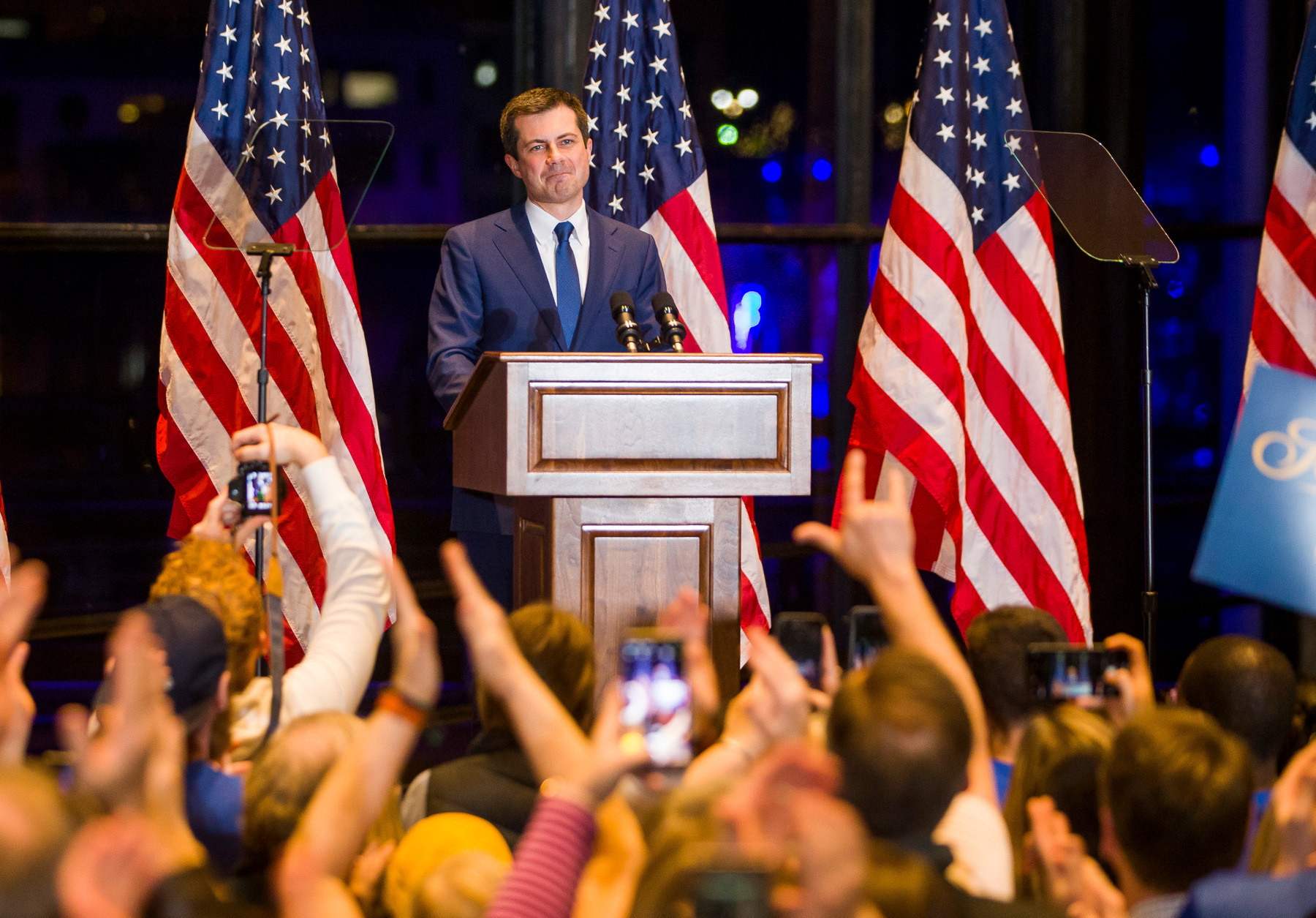Two Democratic candidates Amy Klobuchar and Pete Buttigieg have announced they are ending their bids for presidency, throwing support behind party favourite Joe Biden on the eve of Super Tuesday.
Both Buttigieg and Klobuchar mounted largely successful campaigns in early primary states, running as moderate alternatives to progressive Bernie Sanders.
“Tonight I am making the difficult decision to suspend my campaign for the presidency,” announced Pete Buttigieg. “We have a responsibility to consider the effect of remaining in the race any further.”
The surprise twist comes after fellow moderate and party favourite Joe Biden made a late come back, surging to victory in South Carolina's Democratic presidential primary after poor performances in the first three primaries. The former vice president won nearly two thirds of the black vote in South Carolina, dominating his closest competitor and frontrunner, Vermont Senator Bernie Sanders, according to results from exit polls from Saturday.
The former vice president won nearly two thirds of the black vote in South Carolina, dominating his closest competitor and frontrunner, Vermont Senator Bernie Sanders, according to results from exit polls from Saturday.

Pete Buttigieg announces he is ending his campaign for presidential nomination. Source: AAP
The latest events have helped narrow the field going into Super Tuesday, when 14 states will vote on their preferred Democratic candidate on a single day.
The Democratic race began with 29 candidates and is now reduced to just five: Senator Bernie Sanders, former Vice President Joe Biden, Senator Elizabeth Warren, billionaire Michael Bloomberg and outsider Tulsi Gabbard.
The primary process
The Democratic primaries are a six month long process, with elections held in each state to declare their preferred candidate.
The process began on February 2 in Iowa before travelling to Nevada, New Hampshire and on to Super Tuesday.
After Super Tuesday, six more states will vote on Tuesday, March 10, running for a further three months before a final national decision is made at the Democratic National Convention in July.
System is broken
The latest turn in events throws into question the influence of early voting states, traditionally seen as bellwethers for the Democratic race.
Iowa’s first in the nation status is believed to set the tone for candidates’ campaigns throughout the polls.
Campaigns invest millions of dollars and hours of door-knocking into winning the state’s voters, where 90 percent of caucus-goers are white.
But this year, Iowa’s caucuses ended in results chaos and a non-result. Just one-tenth of a percentage point separated Pete Buttigieg and Bernie Sanders, with Buttigieg nudging into the lead.
Joe Biden was left trailing behind.

Wobbly after Iowa, Biden confronts a perilous moment. Source: The New York Times
Black voters
Those watching on in later voting states like Georgia, say the Democratic primary process is flawed and say the influence of early states sidelines candidates of color.
In Georgia, 30 percent of the population is African American and they won’t get a chance to vote until the end of March.
“We understand that the system is broken,” says John Taylor, who runs the Black Male Initiative - a grassroots organisation trying to encourage more black men to register and engage them in politics.
“I can't name a whiter place in America than Iowa, New Hampshire, and like Vermont.
“It does not take into consideration the real heart of this country. It doesn't take into consideration all the hardworking people of color and immigrants in this country, and it doesn't reflect their views and their values.”
The Democratic race began with several candidates of colour, including Julian Castro, Deval Partick, Kamala Harris and Andrew Yang. They have since all dropped out. Only one candidate of colour remains in the race, Samoan-American congresswoman Tulsi Gabbard.
In 2016, nearly 53 percent of black male voters sat the election out.
The Democratic party is increasingly diverse - and many say to turn out will be crucial to win the election.
“We live in a state where we have about 112,000 unregistered black men,” John said.
“The raw power that we have is the ability to be a voice that is largely unheard, quite frankly, it has been sleeping and that can now wake up and do some great work.”
Who will take on Trump?
On the eve of Super Tuesday, with only four states having polled, five candidates remain in the race.
But Democratic voters remain divided.
Results from early primaries have only further entrenched the divide between the party’s progressive left and more moderate voters ahead of Super Tuesday.

Amy Klobuchar drops out of the presidential race and endorses Biden. Source: The New York Times
Some hope moderate supporters of Pete Buttigieg and Amy Klobucharwill now rally behind Joe Biden.
The race to find Trump’s opponent is shaping up a showdown with progressive Bernie Sanders, who won the popular vote in Iowa followed by decisive victories in both Nevada and New Hampshire to take a solid lead.
It’s still not clear which path forward will defeat Donald Trump and take them to the White House.
READ MORE

Inside the chaos of the Iowa caucus


